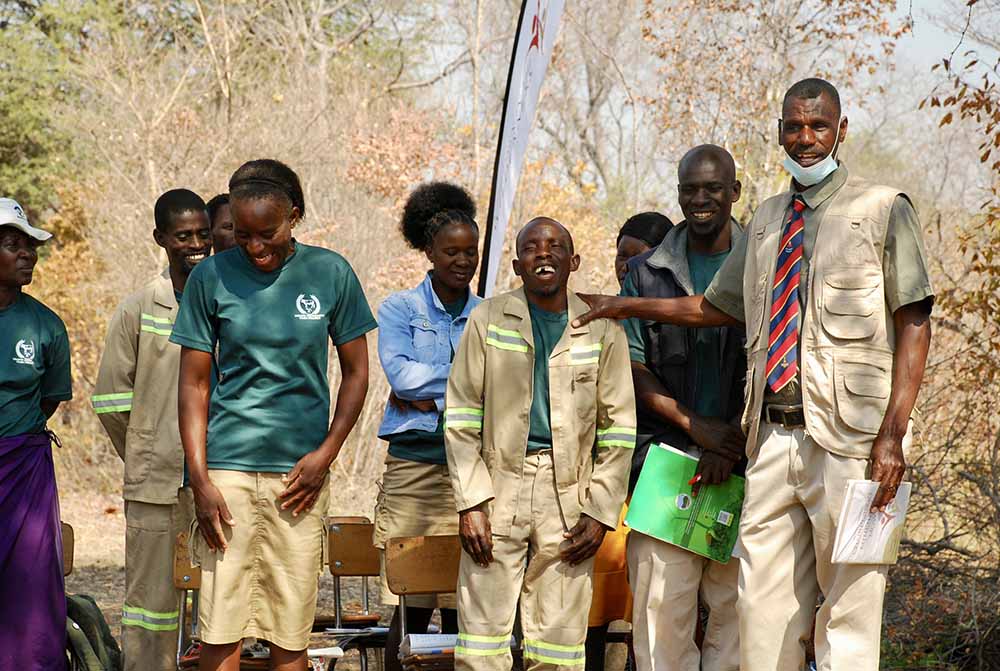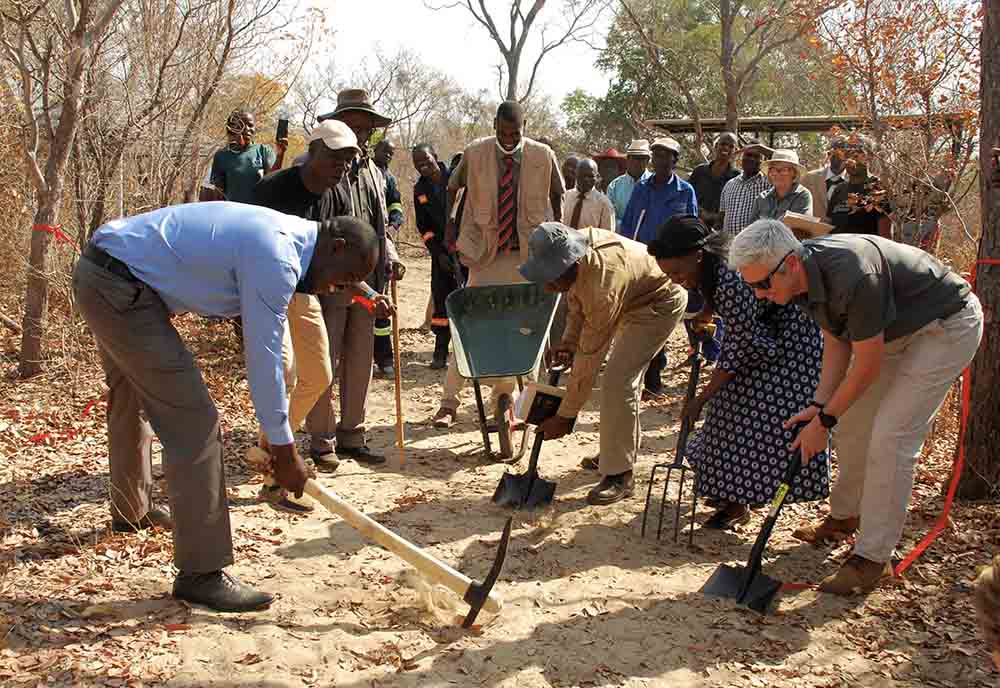Children in the Wilderness (CITW) and the International Union for Conservation of Nature (IUCN) are proud to join forces to unveil a pioneering sustainable farming initiative known as the Wilderness Ngamo Livestock Farm and Vocational Centre in Zimbabwe. Ground was officially broken on the 30th July, marking the start of this innovative sustainable farming initiative.

Located between the rural communities of Ngamo and Ziga near Wilderness Linkwasha in Hwange National Park, that is a part of the Kavango–Zambezi Transfrontier Conservation Area (KAZA TFCA), the project aims to leverage the region's suitability for livestock farming. It seeks to establish a community farm, complete with an abattoir, while also offering opportunities for sustainable agricultural training. By empowering these two communities and their 190 households, the initiative aims to foster a self-sustaining cultivated ecosystem that not only benefits residents and the local economy, but also provides skills training, education, job creation, and ultimately, a good business model to supply Wilderness and other safari camps in the area with staff rations.
"This is a significant milestone for CITW and Wilderness, achieved after years of planning and hope to get it off the ground. Now, thanks to the support and collaborative efforts of our partners at the IUCN, local stakeholders, and the SADC TFCA Financing Facility who funded this initiative, we are thrilled to have secured the necessary funds to bring this remarkable facility to life", noted Sue Goatley, Wilderness Zambezi Impact Manager.
“This endeavour will serve as both a working cattle farm and a training centre for students seeking accredited training. True to our core Impact strategy, it embodies our commitment to fostering positive change within the communities where we operate, offering numerous ongoing empowerment opportunities”, she added.

By establishing an agricultural training centre with boarding facilities, Wilderness and the IUCN aim to accommodate up to 40 school leavers aged 17 to 25, offering a one-year diploma programme accredited by the Ministry of Education. This will provide students with the practical and theoretical farming skills necessary for employment in the agricultural sector. In the event that they are unable to secure formal employment, these skills will also enable them to enhance their subsistence farming practices, thus contributing to community capacity building and empowering the next generation of agrarian leaders.
“We are excited to work with Wilderness on this project for several reasons – firstly, as an opportunity to work with private sector in deploying alternative livelihoods for local communities living near Hwange National Park. Secondly, the high potential for this project to unlock income opportunities for communities through a guaranteed existing value chain in Wilderness camps in this region (for agricultural produce); and finally, the project is not just an opportunity for youth empowerment through training and agricultural enterprises, but also aims to reduce the pressure on the unsustainable harvesting of natural resources. This project is being implemented in the Zimbabwean component of the Kavango Zambezi Transfrontier Conservation Area (KAZA TFCA), and we’re confident that it will contribute towards the objectives of this TFCA”, says Kudakwashe Chigodo, Team Leader at the SADC TFCA Financing Facility (IUCN).

The initiative embodies a holistic approach to empowering local farmers through diverse agricultural strategies, including livestock improvement, crop cultivation, training, as well as an abattoir construction. By incorporating viable farming techniques, farmers can enhance resilience to climate change and ensure the long-term productivity of their agricultural systems. Additionally, the project seeks to diversify crop production by cultivating leafy and region-appropriate vegetables, generating additional income through the sale of surplus produce, and enhancing nutrition and food security within the community.
The construction of an abattoir will further contribute to economic development by creating a commercial food source that’s able to supply meat and vegetables back to Wilderness’ regional staff and camps. “In doing so, the project achieves a full and comprehensive cycle, fostering sustainable agricultural practices, bolstering food security, and driving economic development within our partner communities at Ngamo and Ziga”, concluded Sue.
About our Partners
The SADC Transfrontier TFCA Financing Facility (TFCA FF) is a dedicated fund established to support the development, management of TFCAs within the SADC region. The TFCA FF aims to promote biodiversity conservation, socio-economic development, and regional integration by providing financial resources to projects that enhance the management and connectivity of these vital ecological landscapes for benefits across the SADC region. The IUCN works closely with governments, non-governmental organisations, and local communities to ensure that funded projects are impactful, inclusive, and sustainable. For the CITW Ngamo project, funding has been made possible with financial support from German Federal Ministry of Economic Co-operation and Development (BMZ), with the funding administered by the KfW Development Bank through the SADC Secretariat and IUCN ESARO partnership.

Let’s plan your next journey
Ready?
When we say we’re there every step of the way, we mean it, literally. From planning the perfect circuit, to private inter-camp transfers on Wilderness Air, and easing you through Customs. We’re with you on the ground, at your side, 24-7, from start to finish. Ready to take the road less travelled? Contact our Travel Designers to plan an unforgettable journey.